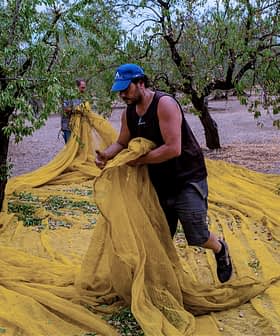Following the recent epidemic of Xylella fastidiosa in the Apulia region of south Italy which affected several thousands hectares of olive plantations, the European Food Safety Authority (EFSA) has warned that the bacterium could spread to olive groves across Europe.
A recent study published by the EFSA’s Panel on Plant Health, has examined the risk to plant health posed by Xylella fastidiosa across the European Union (EU) and identified various risk reduction options. The bacterium is carried by insects and causes a variety of diseases in many different types of plants.
At the moment, only one strain of Xylella fastidiosa is prevalent in Europe and is restricted to the Apulia region where it is under control. But the study warns that the bacterium could spread to other countries in the EU and cause significant crop damage and loss. Pests carrying Xylella fastidiosa can survive during transport and be present in plants grown in nurseries for replanting elsewhere.
While the use of insecticides could control its spread, the study says that this can impact negatively on the environment. Approaches to controlling the problem suggested focus on prevention and the containment of outbreaks which would include measures like pest-free production sites, surveillance, certification schemes to certify that plants are free of Xylella fastidiosa, screen house production, control of insects, testing for plant propagation material, and adequate preparation, treatment and inspection of plant consignments.







